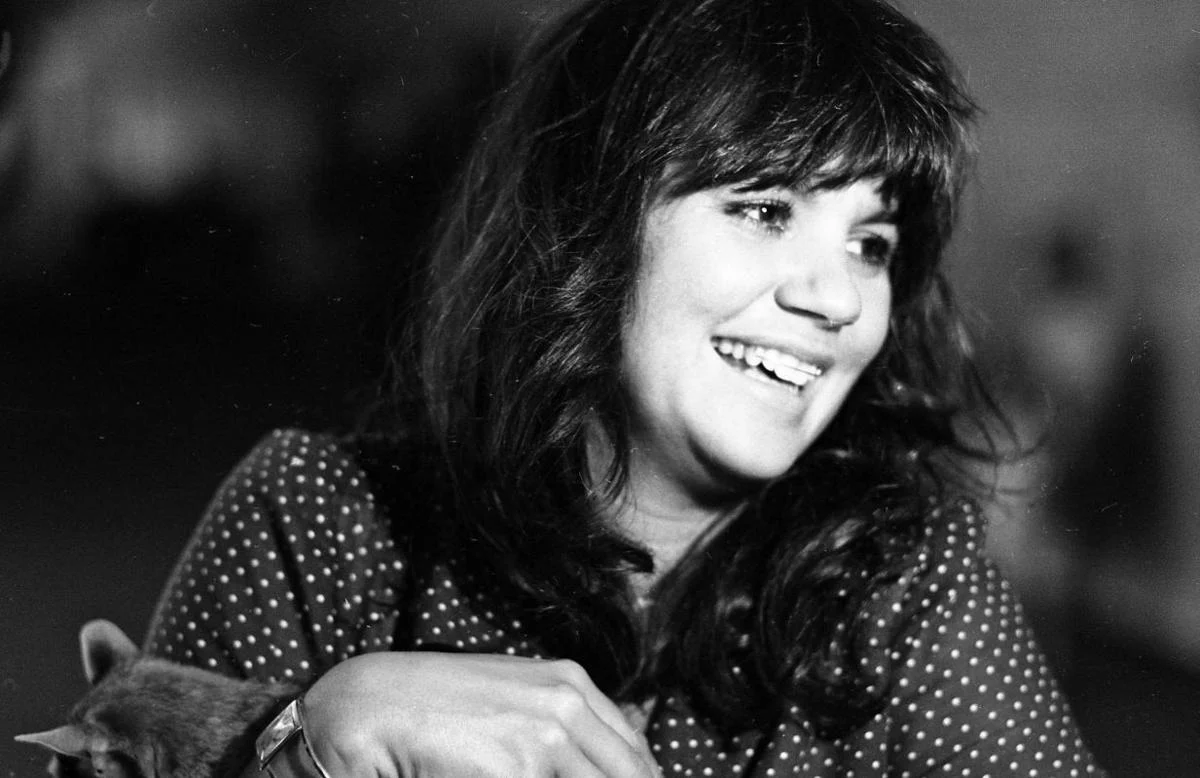
A quiet vow of self-respect: leaving before love turns into a waiting room for pain—and making that exit sound like mercy.
If you look back to early 1972, Linda Ronstadt was still building the bridge that would soon carry her into superstardom. Her self-titled album Linda Ronstadt arrived on January 17, 1972, and it entered Billboard’s Top LPs chart a few weeks later—debuting at No. 182 in the issue dated February 12, 1972. That’s not the kind of number people frame on a wall. But history has a funny way of hiding its turning points in modest places. And tucked on Side One, track three, you’ll find “I Won’t Be Hangin’ Round”—a song that doesn’t need a trophy case to feel important.
First, the facts that anchor it: “I Won’t Be Hangin’ Round” was composed by Eric Kaz. It runs about 3:03, and it was not issued as a standalone hit single from the album—more of an album-track confession, meant to be discovered the way you discover truths: slowly, privately, when you’re ready.
What makes the recording linger is the way it fuses worlds. The album itself was cut across several locations, with the majority of sessions at Muscle Shoals Sound Studio in Sheffield, Alabama, and it was produced by John Boylan. On “I Won’t Be Hangin’ Round,” the Muscle Shoals imprint is especially tangible: David Hood on bass, Roger Hawkins on drums, Barry Beckett on keyboards, Tippy Armstrong on guitar, and Weldon Myrick adding steel guitar color—an ensemble that knows how to make a groove feel like weather moving in. And then there are the backing voices—Merry Clayton, Dianne Davidson, and Miss Ona—not merely harmonizing, but lifting the chorus like a small choir of hard-earned resolve.
As a songwriter, Eric Kaz is one of those names that can live quietly in the margins while his lines travel farther than his own spotlight ever did; his catalog is full of songs that other singers choose when they want emotional truth more than flash. And this particular truth—I won’t be hanging round—lands with the weight of a decision already made. The beauty is that it isn’t sung like a threat. Ronstadt doesn’t spit the words out; she releases them. There’s a difference. One is anger; the other is clarity.
That’s the meaning at the center of “I Won’t Be Hangin’ Round”: the refusal to become a permanent witness to your own heartbreak. The narrator isn’t bargaining, isn’t rehearsing excuses, isn’t romanticizing the damage. She’s drawing a line—softly, almost tenderly—and stepping over it. The song understands something many people only learn after a few long nights: staying can be its own kind of self-abandonment, and leaving can be an act of self-respect that still aches.
In the wider story of Linda Ronstadt, this track helps explain why the album matters even with its humble chart life. The record mixed new singer-songwriter material with deep roots—country standards, folk tradition, and R&B—while also drawing in players who would soon shape the West Coast sound, including Glenn Frey and Don Henley elsewhere on the album. So “I Won’t Be Hangin’ Round” becomes more than a breakup song: it’s a snapshot of an artist learning how to carry strength without losing softness, how to sing with fire while keeping perfect control of the flame.
Some songs feel like a photograph; this one feels like a letter you never sent—but kept, because it told the truth.